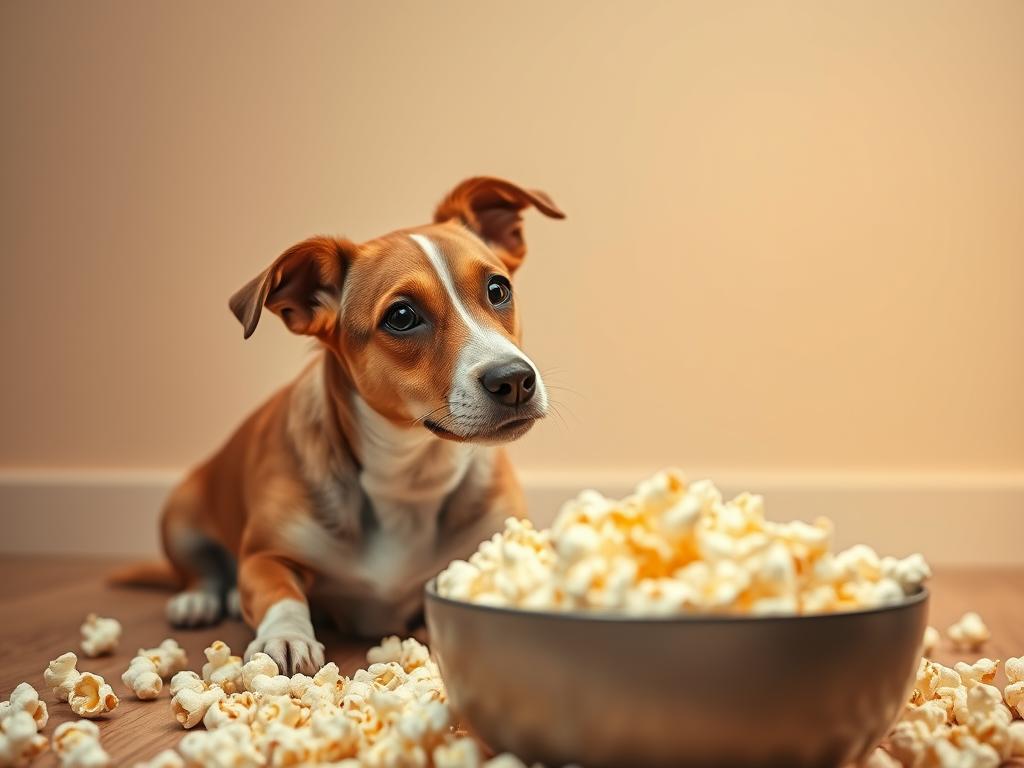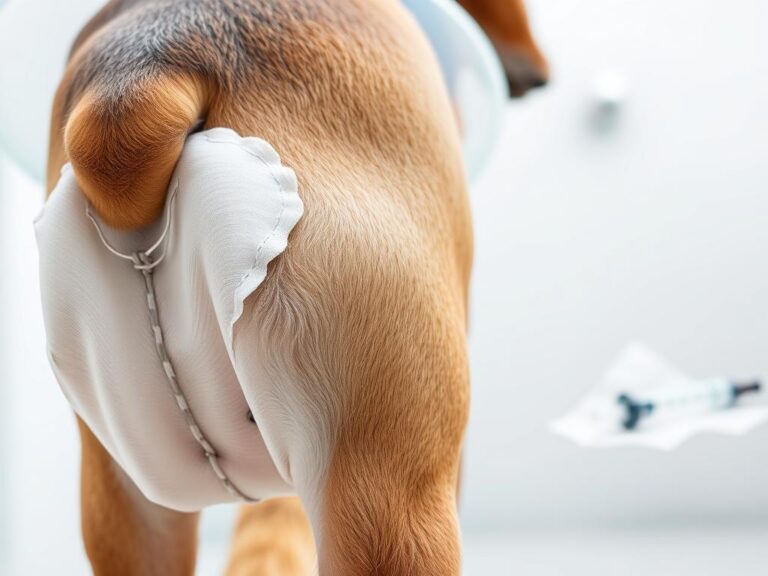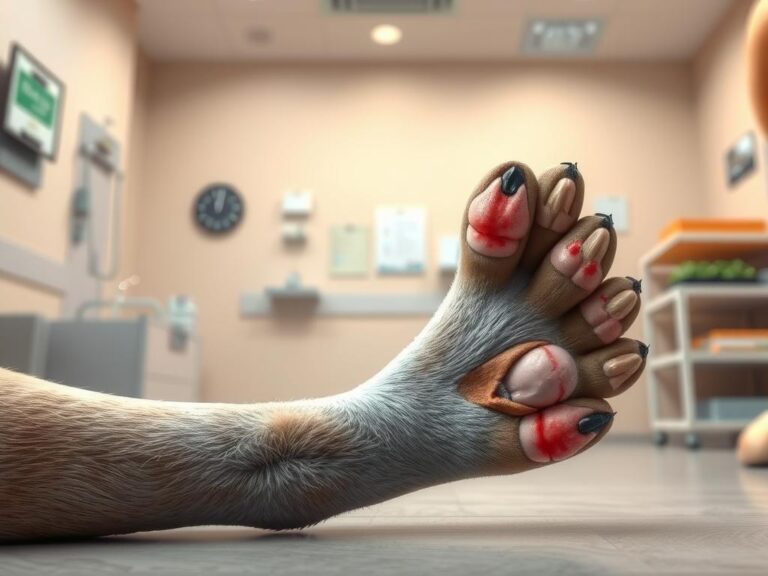Feeding Popcorn to Dogs: What You Need to Know
As a responsible dog owner, it’s natural to wonder about the safety of sharing human snacks with your furry friend. One common query revolves around canine nutrition and whether dogs can indulge in popcorn. While it might seem harmless, the answer isn’t straightforward.
The concern isn’t just about whether dogs can eat popcorn, but also about the potential risks associated with it. Understanding these risks is crucial for making informed decisions about your dog’s diet and ensuring their overall health and well-being.
By exploring the various aspects of feeding popcorn to dogs, we can better understand the implications and provide guidance for dog owners.
The Basics of Popcorn and Canine Nutrition
As dog owners consider sharing their snacks with their pets, understanding popcorn’s nutritional value and canine digestion becomes essential.
Popcorn is a whole grain food that is high in carbohydrates and fiber, making it a potentially healthy snack option. However, its nutritional impact on dogs depends on several factors.
Nutritional Composition of Popcorn
Popcorn is primarily composed of carbohydrates, with a significant amount of fiber. It also contains various minerals such as magnesium, phosphorus, and zinc. The nutritional content can vary based on how the popcorn is prepared.
| Nutrient | Amount per Serving |
|---|---|
| Carbohydrates | 30g |
| Fiber | 4g |
| Magnesium | 10% DV |
How Dogs Process Different Foods
Dogs process foods differently than humans, with a shorter digestive tract and different gut flora. Their nutritional needs are tailored to a diet rich in protein and fat from animal sources. While dogs can digest some carbohydrates, their ability to process complex carbs like those found in popcorn can vary.
Understanding these basics is crucial for determining whether popcorn can be a safe and healthy snack for dogs.
Can Dogs Eat Popcorn? The Complete Answer
The safety of feeding popcorn to dogs depends on several factors that need to be considered. While popcorn itself is not toxic to dogs, the way it’s prepared and the additives used can pose risks.
Plain Popcorn vs. Flavored Varieties
Plain, air-popped popcorn is generally considered safe for dogs in moderation. However, flavored varieties can be problematic due to additives like cheese seasoning or caramel, which can be harmful.
Flavored popcorn often contains ingredients that are not safe for canine consumption, making plain popcorn the safer choice.
Portion Considerations for Different Dog Sizes
The appropriate portion size of popcorn for dogs varies based on their size. Small dogs should have fewer pieces due to their smaller stomachs and higher risk of choking.
Large dogs can have slightly more, but it’s crucial to keep the amount minimal to avoid digestive issues. Always consider your dog’s individual health and consult with a veterinarian if unsure.
By understanding these factors, dog owners can make informed decisions about sharing popcorn with their pets.
Potential Benefits of Popcorn for Dogs
While many human snacks are off-limits to dogs, popcorn can be a beneficial addition to their diet when given correctly. Popcorn is more than just a tasty snack; it contains nutrients that can support canine health.
Fiber Content and Digestive Health
One of the key benefits of popcorn is its fiber content. Fiber is essential for maintaining healthy digestion in dogs, helping to regulate bowel movements and prevent constipation. A diet rich in fiber can also help support healthy gut bacteria, which is crucial for overall canine health.
Low-Calorie Treat Option
Popcorn can also serve as a low-calorie treat for dogs, especially when compared to traditional dog treats that are high in fat and calories. Air-popped popcorn is a nutritious alternative, providing a satisfying crunch without the extra calories. This makes it an excellent option for dogs that need to manage their weight.
Here’s a comparison of the calorie content in different dog treats and popcorn:
| Treat Type | Calories per Serving |
|---|---|
| Air-popped Popcorn | 30 |
| Traditional Dog Biscuits | 120 |
| Homemade Dog Treats (with ingredients like peanut butter) | 150 |
Risks and Dangers of Feeding Popcorn to Dogs
While popcorn might seem like a harmless snack, it poses several risks to dogs. The dangers associated with feeding popcorn to canine companions range from immediate physical hazards to potential long-term health issues.
Choking Hazards from Unpopped Kernels
One of the most immediate risks of feeding popcorn to dogs is the choking hazard posed by unpopped kernels. These hard kernels can easily get stuck in a dog’s throat, potentially leading to a life-threatening situation if not addressed promptly. It’s crucial to ensure that any popcorn given to dogs is fully popped to mitigate this risk.
Digestive Issues and Upset Stomach
Popcorn can also cause digestive issues in dogs. The high fiber content, while beneficial in moderation, can lead to an upset stomach if consumed in excess. Symptoms may include vomiting, diarrhea, and abdominal pain. Monitoring a dog’s reaction to popcorn is essential to prevent these issues.
Dental Concerns
Furthermore, popcorn can contribute to dental concerns in dogs. Kernels can get stuck between teeth, potentially leading to oral health issues if not properly cleaned. Regular dental care is vital for dogs that are fed popcorn as an occasional treat.
Harmful Popcorn Toppings and Additives
Popcorn toppings that we enjoy can be toxic to our canine companions. While a plain, air-popped handful might seem harmless, the additions we make can turn this snack into a health risk for dogs.
Butter and Salt Dangers
Butter and salt, two common popcorn toppings, can be particularly harmful to dogs. Excessive salt consumption can lead to sodium ion poisoning, causing symptoms like vomiting, diarrhea, and in severe cases, seizures. Butter, being high in fat, can cause pancreatitis, a painful condition that requires immediate veterinary attention.
Toxic Seasonings and Flavorings
Many seasonings and flavorings used on popcorn are toxic to dogs. For instance, garlic and onion powder belong to the Allium family and can cause anemia in dogs by damaging their red blood cells. Other flavorings might contain xylitol, a sugar substitute that is highly toxic to dogs, leading to potentially fatal hypoglycemia.
Artificial Ingredients to Avoid
Artificial ingredients, including certain preservatives and coloring agents, can also be harmful. Some artificial flavor enhancers can cause adverse reactions in dogs, ranging from mild digestive issues to severe allergic reactions. It’s crucial to avoid any popcorn with artificial additives when considering it as a treat for your dog.
When preparing popcorn for your dog, it’s essential to keep it plain and simple. Avoid any toppings or additives, and opt for air-popped popcorn to minimize the risk of adverse effects.
How to Safely Prepare Popcorn for Your Dog
The key to safely sharing popcorn with your dog lies in the preparation method. To ensure your dog enjoys this snack without any adverse effects, it’s crucial to choose the right preparation technique.
Air-Popped Methods
Air-popped popcorn is the safest and healthiest option for dogs. This method avoids adding extra fats or oils that can be harmful to canine health. Using an air popper is simple and efficient, producing a batch of popcorn that’s free from potential toxins. Always check for unpopped kernels before serving to avoid choking hazards.
Serving Suggestions and Best Practices
When serving popcorn to your dog, it’s essential to follow some best practices. First, ensure the popcorn is completely cooled to avoid burning your dog’s mouth or tongue. Serve it in moderation as a treat, not as a replacement for regular meals. Also, avoid adding any seasonings or toppings, as they can be harmful. By following these guidelines, you can provide a fun and safe snack for your dog.
Recognizing Adverse Reactions in Your Dog
It’s vital to recognize the signs of adverse reactions in dogs after they consume popcorn. While popcorn can be a harmless snack for many dogs, some may experience adverse effects.
Signs of Allergic Reactions
Allergic reactions to popcorn in dogs can manifest in various ways. Common signs include itching, scratching, and skin irritation. In more severe cases, dogs may experience swelling, hives, or difficulty breathing. If you notice any of these symptoms, it’s crucial to seek veterinary advice promptly.
When to Contact Your Veterinarian
If your dog exhibits any signs of an allergic reaction or adverse effects after consuming popcorn, contact your veterinarian immediately. It’s always better to err on the side of caution when it comes to your dog’s health. Your veterinarian can provide guidance on the best course of action and help you determine whether popcorn is safe for your dog to eat.
Feeding Popcorn to Dogs: A Balanced View
Feeding popcorn to dogs can be a safe and enjoyable treat when done responsibly. As discussed, plain, air-popped popcorn is the best option, avoiding harmful toppings and additives that can jeopardize canine health.
While popcorn can provide some benefits, such as fiber content and low-calorie counts, it’s crucial to consider the potential risks, including choking hazards and digestive issues. By understanding these factors, dog owners can make informed decisions about incorporating popcorn into their dog’s treat routine.
Ultimately, responsible pet ownership involves being aware of the foods we share with our dogs. By choosing the right type of popcorn and being mindful of portion sizes, dog owners can help ensure their pets enjoy this snack without adverse effects on their canine health.




